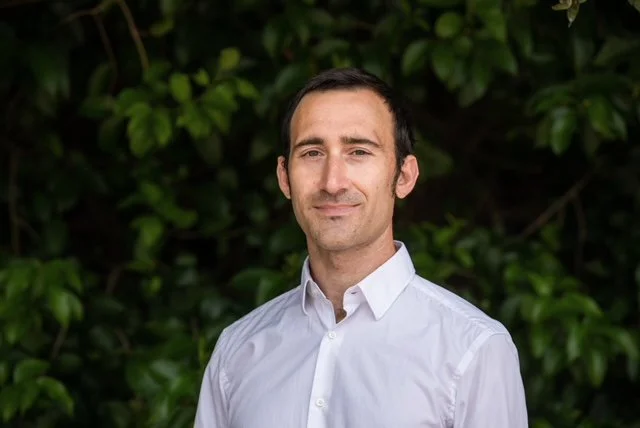▻ How The Wine World Can Combat Climate Change
In conversation with Josep Maria Ribas Portella of Familia Torres
Episode Summary:-
Josep Maria Ribas Portella is the Climate and Sustainability Director of Familia Torres. Miguel Torres Snr, the President, has been the most high-profile vintner pioneering climate-change solutions in several countries, with some encouraging results. Josep, who is an industrial engineer with a Masters degree in Sustainable Energy Systems, joined Torres three years ago, and in this episode, he talks with Sarah Kemp about his work and his role as a director of International Wineries for Climate Change Action, a group founded in 2019 by Miguel Torres in collaboration with Jackson Family Wines.
It was a natural step for Torres. In 2008 the Torres family had established the Torres and Earth environmental program, with a double goal: adapting to climate change, and mitigating the impact of the winery’s activity with a reduction of its carbon footprint. As a result, between 2008 and 2020, the company reduced its CO2 emissions by 34% per bottle.
“Climate change is a great emergency,” Josep says. “As time goes by, it is getting bigger.” Sarah asks which, out of all their initiatives, has had the biggest impact, and Josep elaborates: It is important first to measure a company’s carbon footprint, counting activities that affect both direct and indirect emissions, from the winery itself right through to the end consumer. To identify the “hot spots,” you need to look at the journey holistically (though some “hot spots” are outside the company’s control, e.g., recycling). One immediate “hot spot” is the weight of the glass bottle; Josep explains, ”For many years, we followed marketing and image guidelines; now we have to follow common sense, and that means reducing the weight of the bottle.” Sarah wonders about the reaction of the market, particularly the US, where, traditionally, heavy glass bottles have often been seen as part of a premium image. Josep sees a welcome change in direction now, and mentions how the Scandinavian monopolies (who control the import of wine into their countries) give extra points if the bottles are lighter. Then, as part of the early stages of the basic program, he adds that solar panels were introduced and have been successful in a variety of ways, where they will soon provide the energy to power electric tractors.
Another important initiative is the revival of ancient grape varietals. “We need to anticipate, and this means some of the varieties we are cultivating right now, we are sure in the future we are not going to be able to use them,” Josep says. A better solution, he notes: “Planting more resistant varieties, not hybrids, but recovered from the past.” The ability of these historic varieties to be more resistant to drought and ripen later is key. There are also practices that can be introduced in the vineyard, such as more efficient canopy management and spacing rows a little bit further apart, as well as buying land in cooler regions.
Sarah enquires whether global economic issues are causing some producers not to embrace change. Josep discusses the complexities, as when a wine grower in Rioja complained that he wanted to plant vines on a piece of land higher up – and thus cooler – but that it was outside the DO. Josep believes to combat climate change, we need to be more adaptable in more ways, never forgetting quality while working toward the idea that “any product we bring to the market should be sustainable.”
Josep is on the board of the International Wineries for Climate Change group, which now has grown to 37 members in nine countries around the world, including well-known wineries such as Ridge, the Symington Group, Cullen and Yalumba. He describes their work and the strict requirements on joining the group, including the requirement for the winery to be audited and have the stringent ISO-14064 certificate.
Research continues in all areas, but cover crop is one that is being actively explored, with the three-year project’s results due soon. Another project undertaken is the investigation into local yeasts to see if there is a strain which can cope with the increase in alcohol levels due to climate change.
Sarah concludes by asking Josep if he is optimistic or pessimistic. “Climate change is not reversible--ice caps melt, accept that reality,” he concedes. “I’m optimistic for Torres, because they have done their homework . . .
““If Spain becomes a desert and temperatures like 40 and 50 degrees start to become an average, a normal thing, we are not going to be able to have vineyards, maybe we are going to have to plant from inside a building with temperature control.””
His conclusion is clear: “We are all interconnected by a chain that, once you increase a single tenth of a degree of temperature, you are just changing the entire world, the entire eco-system, the animals, everything. It’s very difficult to be optimistic when you see that, but it is up to us.”
Running Order:-
-
0.00 – 10.30
“Wine is not how thick the glass is, it is what’s in the bottle.”
– Josep Maria Ribas Portella and the holistic approach Torres has to combat climate change.
– The importance of measuring the carbon footprint from the winery to the end consumer.
– The impact of glass bottle weight. -
10.31 – 20.30
“The varieties we are cultivating right now, we are sure in the future we are not going to be able to use them.”
– The future for different varieties.
– Planting historic varieties which can withstand drought.
– Changes needed in the vineyard.
– Buying land in cooler climates.
– The economic impact of climate change for producers.
– Alternatives to glass. -
20.31 – 35.10
“ We are all interconnected by a chain that, once you increase a single tenth of a degree of temperature, you are just changing the entire world, the entire eco-system, the animals, everything – it’s very difficult to be optimistic when you see that, but it is up to us.”
– International Wineries for Climate Action group.
– Entry requirements to join the International Wineries for Climate Action.
– The objectives of the group.
– Torres’s new research projects.
– Josep’s view on whether to be optimistic or pessimistic.
RELATED POSTS
Keep up with our adventures in wine
Further Information;-
Familia Torres
International Wineries for Climate Change Action








Find out why the Connoisseur Week is Sarah Kemp and Jane Anson’s favourite week of the year.